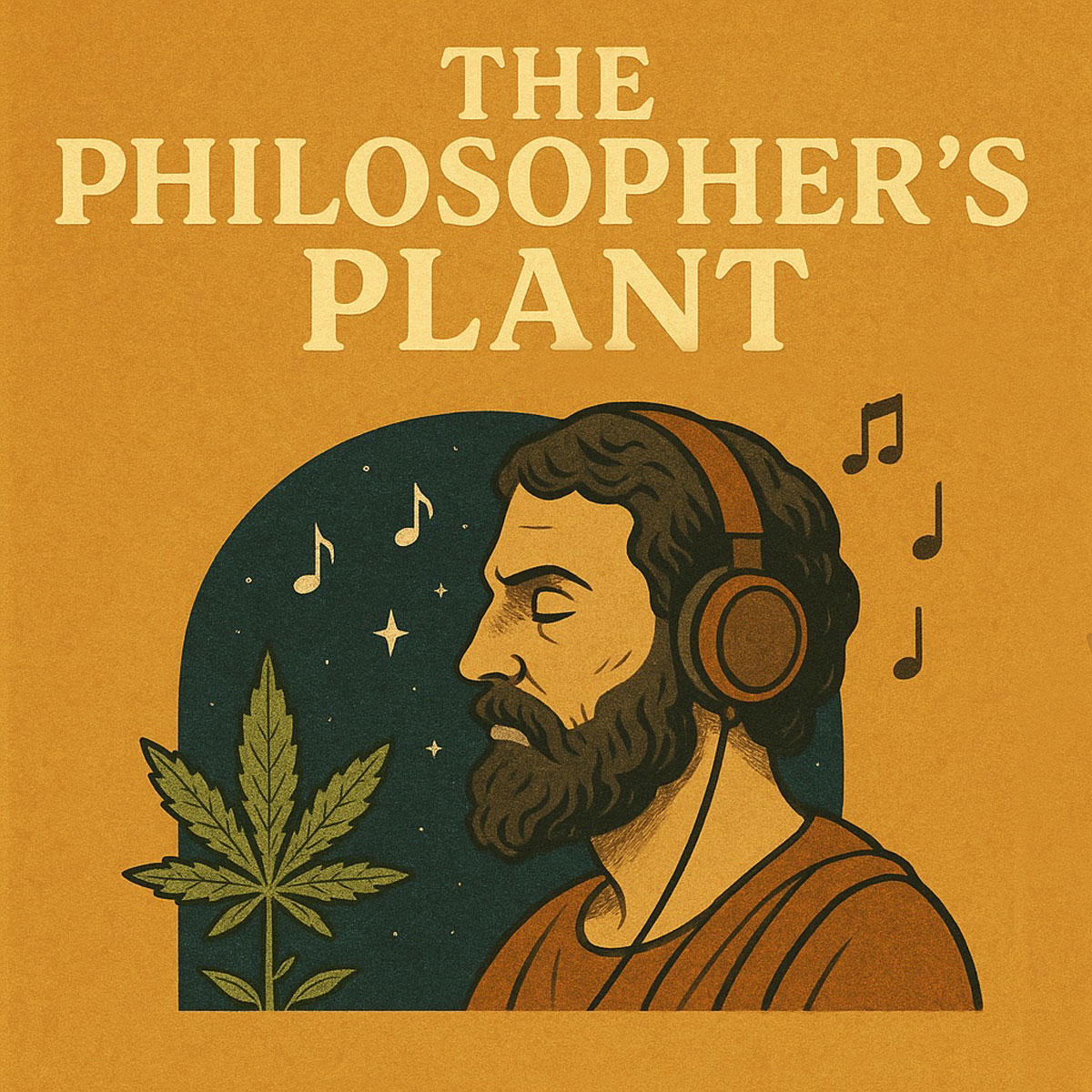Author: Dr. Kim, Medical Doctor at Aurea Care (Pen name)
Time usually behaves. It ticks along, easy to ignore. Then you try a little green, and the clock starts misbehaving. Five minutes swell into fifteen.
A song you’ve heard a hundred times suddenly reveals layers you’d missed: a hidden harmony, a buried rhythm, the breath before a line. Even the rasp in the singer’s voice feels like art.
Music feels ancient. Older than words. Older than fire. Woven into us before we even knew what we were. It’s strange and beautiful, and it makes you want to sit still and let the sound wash over you.
Meanwhile, you’re standing in the kitchen asking where the hell your keys are—while they’re literally in your hand.
That’s what cannabis does. It fiddles with the settings of memory and perception. Everyday life turns just strange enough to catch your attention. Suddenly, the water you’ve been swimming in all along comes into view. And that’s where philosophy begins.
A philosopher friend once told me, “You can’t really do philosophy after the 1960s without cannabis or psychedelics.” He wasn’t joking.
Cannabis is the philosopher’s plant, and humans are a species wired to ask questions. It doesn’t hand out answers, but pokes you and says, “Hey, ever notice this?” Which is why this stubborn little green hitchhiker has stayed by our side for thousands of years.
It’s less a drug than a tool. A telescope for inner life. Point it at memory, art, or an idea, and it can unlock something buried. People have used that telescope for thousands of years: in ritual, in meditation, in creativity, and in the search for meaning.
The Backrooms of the Mind
Cannabis has a way of opening the backrooms of the mind. What’s waiting there isn’t always comforting. Most of the time, you stick to the frontrooms—the place where you keep names, passwords, and the program for riding a bike.
The backrooms are different.
Entering the backrooms of the mind can bring up things you haven’t visited in years: the smell of your childhood kitchen, the laugh of an old friend, the mixtape you made in 2003. But not everything there is memory. Sometimes the door opens onto deeper truths about who you are.
In the backrooms, you may notice how memory actually works. We like to think it’s a recording. A photograph of your fifth birthday, filed neatly in the archive.
But memory isn’t a filing cabinet. Or a photo album. Or even an old USB stick you half expect to still work. Each time you recall something, your brain rebuilds that memory from scratch. And each rebuild makes the memory a little more about who you are now, and a little less about what really happened then.
So that birthday you remember is probably as much a reflection of today’s mind as of the day itself. Which is why psychologists say the most accurate memories are often the ones left untouched—retrieved rarely, if at all.
Not every door in the backrooms opens onto memory. Some open onto you. Or worse, the creeping suspicion that you aren’t what you thought you were.
Your sense of self—the feeling of being someone—is just the brain doing a brain thing.
The voice in your head? Not you. No more than your eyesight is you. Same with feelings, habits, personality, values, memories. All of it is just nervous system output.
And once you see that, it’s hard to unsee. The “person” you’ve been identifying with is not an entity at all. It’s just the brain talking to itself, making up a story about who it is.
Which is a little awkward, because it means you’ve basically spent your whole life arguing with your own operating system.
When cannabis or psychedelics open the door to the backrooms, you may glimpse an unsettling fact: the “I” that remembers, plans, and panics is just code pretending to be a coherent person.
In truth, there is no fixed individual. That’s the illusion. The parts you think of as “you”—the voice, the emotions, the thoughts, the memories—are all separate modules in the brain, each doing its own job. They only get stitched together later into the illusion of a single self.
Strip those layers away and what’s left? Awareness. A silent observer watching the contents of the mind.
Most of the time, this isn’t visible. And for good reason. You don’t need existential doubt while crossing the street or chasing down lunch.
But in the backrooms, with a flashlight in hand, cannabis and psychedelics let you ask: What if the self is just another program running? What if “I” is only an interface, and not who I really am?
So yeah—worth a look, the backrooms. Just don’t be surprised if the “you” who returns isn’t quite the same one who went in.
What the Green Time is For
As a writer, I treat cannabis like a tool. Drafting happens in normal brain mode: that’s when I do the mechanical work and catch mistakes—like accidentally writing “penis” instead of “public.”
The green time is for something else: stepping into the scene, seeing the bigger picture, and maybe even remembering that character I forgot halfway through chapter two.
Green time is when I reread the page and see what works and what doesn’t. I sense what I’m really trying to say. I step into a scene, walk around, and live there for a while. I meet my characters and see how they behave when I stop trying to control them.
That’s a writer’s job: to get out of the way and let the truth sneak through. Once I’ve seen the scene from the inside, I close the green telescope, make some tea, and get back to work.
For some, cannabis is medicine. For others, it’s a way to explore the backrooms of the mind. And for some, it’s a way to dive deeper into art, science, and philosophy.
There’s an old line: psychedelics are to the mind what the telescope was to astronomy and the microscope to biology. Cannabis can play a similar role—quieter, gentler, but still a tool for insight, healing, and self-understanding. Think of it as psychedelics’ quieter cousin. Just, you know—with fewer talking snakes.
That’s why this unassuming little plant has stayed with us for thousands of years. It points to the unexplored corners of the mind, presses a flashlight into your palm, and says: Go look.
Oh, and the keys might sit forgotten in your hand the whole time. Don’t worry about it. You’ll find them eventually.

